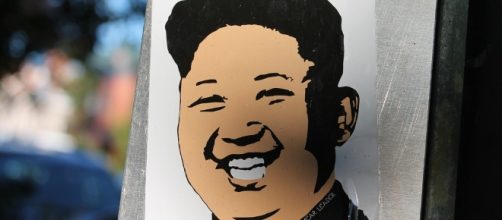On the prospect of a North Korean intercontinental nuclear missile test, Donald Trump said: "It will not happen". However, Pyongyang on Tuesday tested a ballistic missile of intermediate range according to the Pentagon, able to reach Alaska according to specialists.
Nuclear North Korea
Doubts remain about North Korea's ability to equip its missiles with a sufficiently miniaturized and protected nuclear bomb. However, it is just a matter of time, experts and the Pentagon said. In spite of the determination on the record, neither Donald Trump nor his predecessors seem to be able to find the means to stop the progress of the Pyongyang government.
The US administration relied on China, North Korea's only major international partner, to put pressure on North Korea. However, Donald Trump no longer hides his frustration about Beijing. "Maybe China will make a sharp gesture about North Korea and end this nonsense once and for all!" Trump tweeted.
According to the New York Times, President Trump warned Chinese President Xi Jinping on Sunday evening that the United States is now preparing to act alone. This approach could consist in sanctioning Chinese companies, especially banks, which trade with North Korea.
Washington adopted this type of measure for the first time last week. At the same time, the Pentagon continues to work on options for military action against the regime, despite the risks of causing a deadly conflict on the Korean Peninsula.
The president "asked us to prepare a series of options, including military options," said General HR McMaster, Donald Trump's National Security Advisor. However, "nobody wants to get there," because everyone understands "the severe danger to the South Korean population, held hostage" by North Korean guns and missiles, he said.
Secretary of Defense
A war would be "catastrophic," "including most likely in Japan," also recently warned Jim Mattis, the US Secretary of Defense. For some experts, the United States has now no choice but to take note of the progress of Pyongyang, and to seek ambitious objectives than a pure and simple abandonment of its nuclear missile program.
"Today the window to settle a denuclearization of the Korean peninsula," a traditional objective of the US administration, "is closed," said Jeffrey Lewis, a researcher at the Middlebury Institute of International Studies.
Washington must take note of North Korean progress and now seek to "reduce tension" with Pyongyang, "while reinforcing deterrence" against the nuclear weapons of the regime, he said.
The best we can hope for now is to dissuade, contain, restrict the Pyongyang administration, and in the long run, reform it, he said on Twitter. For their part, Moscow and Beijing plead for goodwill gestures from both Pyongyang and Washington.
North Korea must announce an end to its nuclear tests and missile launches, and the United States freeze their military exercises in the peninsula and withdraw THAAD, the US anti-missile shield in South Korea.


